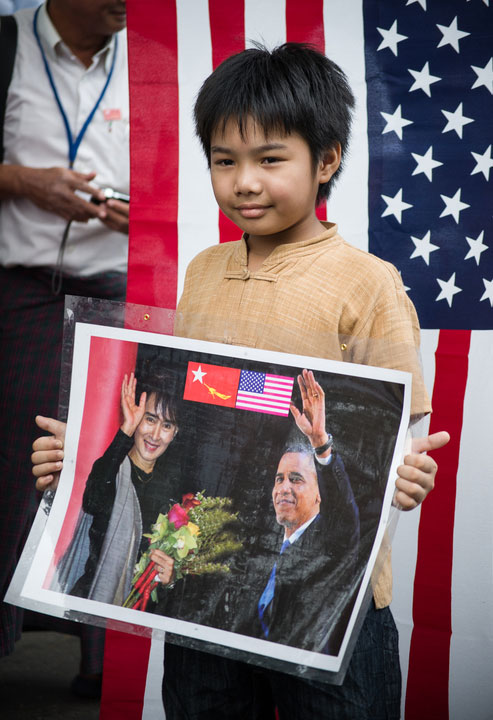Index relies entirely on the support of donors and readers to do its work.
Help us keep amplifying censored voices today.
President Barack Obama’s speech at Yangoon University appears to be another step in what he described as a “remarkable journey” for the country. The progress does look real.
Back in 2007, BBC special correspondent Fergal Keane wrote a report for Index after he returned from reporting the brutal crackdown on the Saffron revolution.
He alluded to the necessarily secretive nature of entering the country and meeting interviewees:
I won’t go into how I managed to get into the country: suffice to say that I was able to operate for several days without being picked up. It was nerve wracking and posed immense human and journalistic challenges.
While describing the immense difficulties local activists faced, he was optimistic about the role of the web in opening up the country and helping local democrats get their story out. “[T]he “bamboo curtain” has been lowered once again,” wrote Keane. “But not for long I believe.”

Yangon, Burma: A child holds a picture of Aung San Suu Kyi along with President Obama (Demotix)
Five years on, and Burma seemed to have changed almost beyond recognition for Keane:
“Since the beginning of 2012 I’ve visited Burma three times. Each trip has been on an official journalist visa. Not once have I been harassed, intimidated or interfered with. I have reported from city slums and rural villages, from huge opposition rallies and from within sedate government compounds. On my first ‘official’ trip I walked the streets of downtown Rangoon interviewing people at random. Again my expectation was that a secret policeman would appear from the shadows and bundle myself and the camera team away. But nothing happened.”
Shortly before Keane wrote that dispatch, the Burmese government had announced that it was scaling down censorship. On 1 June Tint Swe, head of the Press Scrutinisation and Registration Department was quoted by AFP saying:”There will be no press scrutiny job from the end of June. There will be no monitoring of local journals and magazines.”
Remarkable in a country where newspapers and magazines had faced pre-publication censorship for decades.
After the release of political prisoners in 2011, including opposition leader Aung San Suu Kyi and and satirist Zarganar, the first real test of whether the broader population would enjoy extended free speech under the newly liberalised regime came in January of this year, with the Arts of Freedom Film Festival, which more or less passed the test (barring the rejection of some submissions from outside Burma.
Since then, progress has been pretty much consistent. But there is a long way to go yet. Burma is nowhere near a democracy, and the disturbing reports of violence against the Rohinga Muslim population (and the opposition NLD’s apparent indifference to it) are certainly cause for alarm.
Obama spoke today Burma’s need to embrace Roosevelt’s four fundamental freedoms: freedom of speech, freedom of worship, freedom from want, and freedom from fear. Burma has huge challenges in all these areas.
Padraig Reidy is news editor at Index
A controversial climate change sculpture was removed after it upset donors from the energy industry in the US. Kevin Smith asks whether corporate sponsorship by companies like BP and Shell has an affect on artistic freedom in the UK
(more…)
A book depicting a family with two lesbian mothers has been pulled from the shelves in an American school district. “In Our Mothers’ House” by Patricia Polacco, which aims to foster inclusion for those with same sex parents, has been removed from the regular collection of books available in elementary schools throughout the Davis County School District. It is believed students’ can still borrow the book from the library, but only if a permission slip is provided from parents. LGBT families and groups across Utah visited the school district office to challenge the decision.
Legislation which aims to prevent attacks on USA infrastructure and private companies has been approved, despite objections from Barack Obama’s administration. The Cyber Intelligence Sharing and Protection Act (CISPA) encourages companies to share internet collected information in an attempt to prevent cyber attacks from criminals, foreign governments and terrorists. The Republican controlled House of Representatives backed the legislation in a vote of 248-168.